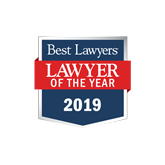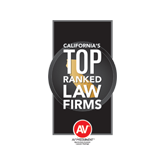A recent case in the Third District Court of Appeals in Sacramento was a defeat for shopping center landlords who seek to restrict access by third parties attempting to communicate with the shopping center patrons.
The message of these third parties usually takes the form of political petitions, social justice issues, or the solicitations of donations for charitable causes, all falling within a genre of speech referred to as “non-commercial expressive activity.” A long litany of case law in the State of California, beginning with the Pruneyard decision in 1980, and clarified in numerous subsequent decisions, has led landlords’ attorneys to the following general framework for the analysis of access issues: Is the property the functional equivalent of the public town square? If not, landlords are not required to permit access by third parties, but if they choose to allow it, they must develop and apply the rules for such access in a manner which does not discriminate on the basis of the content of the message sought to be communicated. If the property is the functional equivalent of the public town square, landlords are required to permit access by third parties for non-commercial messages, but can develop regulations which reasonably restrict the time, place and manner of such communication. For years, the starting point of such regulation has been the requirement that the third party complete an application prior to engaging in such communication.
The latest decision involved Matthew Snatchko, a youth pastor in Placer County, who regularly drove to the Roseville Galleria mall for the express purpose of seeking out teenagers with whom to share his faith. As noted in the decision, while his purpose in being at the mall was admittedly not to shop or patronize the stores, his modus operandi was to approach teenagers in the mall’s common area, ask them if they were willing to talk with him, and after receiving their consent, to engage them in conversation which included the sharing of his faith in Jesus. He did not raise his voice or otherwise create a scene, distribute literature, solicit money or contributions of any kind, ask them to join his church or block access to the stores. He simply engaged strangers in conversations about his faith with their consent on a regular basis and without first completing the shopping center’s required application.
On the particular occasion in question, after having approached three young women in their late teens and chatting with them about matters of faith, a nearby store employee called the mall’s security office. The security officer responded and observed the situation for a time, listening to the conversation from a short distance. The security officer then approached and asked Mr. Snatchko to stop what he was doing or leave the mall. When Mr. Snatchko refused, he was placed under citizen’s arrest and turned over to the Roseville Police. At the arraignment, however, the charges (probably for trespass) were dismissed and the Placer County District Attorney later stipulated that Mr. Snatchko was factually innocent of the charges. Mr. Snatchko then filed suit against Westfield and the private security company employed by it for, among other things, false arrest and violation of his civil rights.
The trial court ruled that Westfield was not liable to Mr. Snatchko because its regulations governing access to the shopping center did not constitute an impermissible restriction on his free speech rights, but were merely reasonable time, place and manner restrictions that were content neutral. The Court noted that Mr. Snatchko had failed and refused to complete the application required by the rules or follow the time, place and manner restrictions that would have been imposed upon him had he submitted the application. Mr. Snatchko appealed.
The appellate court overturned the trial court’s decision, finding that the landlord’s rules, including its requirement for the submission of an application for permission for access, were, in fact, content based, thus subjecting them to a strict scrutiny standard of review, rather than the lesser standard of reasonableness. In making its finding, the appellate court pointed to the distinction in the rules between commercial speech and non-commercial speech, noting that Westfield’s rules prohibited all commercial expressive activities (such as the sale of products, advertising, distribution of coupons and other marketing type activities that may compete with its tenants’ businesses) and permitted non-commercial expressive activities, subject to the requirement for timely submission of an application and compliance with the time, place and manner restrictions.
Up until this decision, it was commonly believed by landlords’ attorneys that landlords were entitled to completely prohibit commercial activity as impinging upon the reasonable profit based expectations of a landlord in operating its private property, and that such a prohibition did not, in and of itself, render the time, place and manner restrictions for non commercial speech subject to the conclusion that they were content based and thus subject to strict scrutiny. This Court, however, found otherwise. It didn’t help that the mall manager testified in his deposition that his understanding of the rules was that if a person approached a stranger in the mall to talk to him about a store in the mall, or his shopping experience at Westfield, or something that had commercial relevance to the activities of the mall, he was permitted to do so. However, if the same person talked to a stranger about any subject other than activities related to the mall, he must first come into the mall’s security office and fill out an application for access. As noted by Pastor Snatchko’s counsel during the course of that deposition, that understanding, carried to its logical conclusion, meant that if a patron of the mall chatted with any other person with whom he was not previously acquainted simply to talk about the weather, sports, or any other topic of generic interest while standing in line for a cashier, such communication would be prohibited by the mall’s rules unless he first filled out an application. The lunacy of such a rule is obvious, and it was that degree of its reach that caused the Court to conclude that the rules were, in fact, impermissible, content-based restrictions that did not serve a compelling private interest.
Although the case is now being further appealed, before you dismiss the holding of this case as being inapplicable to your own centers, read the rules you currently have in place. Many, many shopping center landlords in this state have rules and regulations worded similarly (or even verbatim) to those utilized by Westfield, and while much of the problem in the case dealt with the application of those rules and the specific facts of that case, part of the landlord’s undoing was the language of its rules. If you have no rules, develop them. If you have rules and they read like Westfield’s, revise them. And when you apply the rules, use great care and common sense, and always call your attorney before you arrest a pastor!







